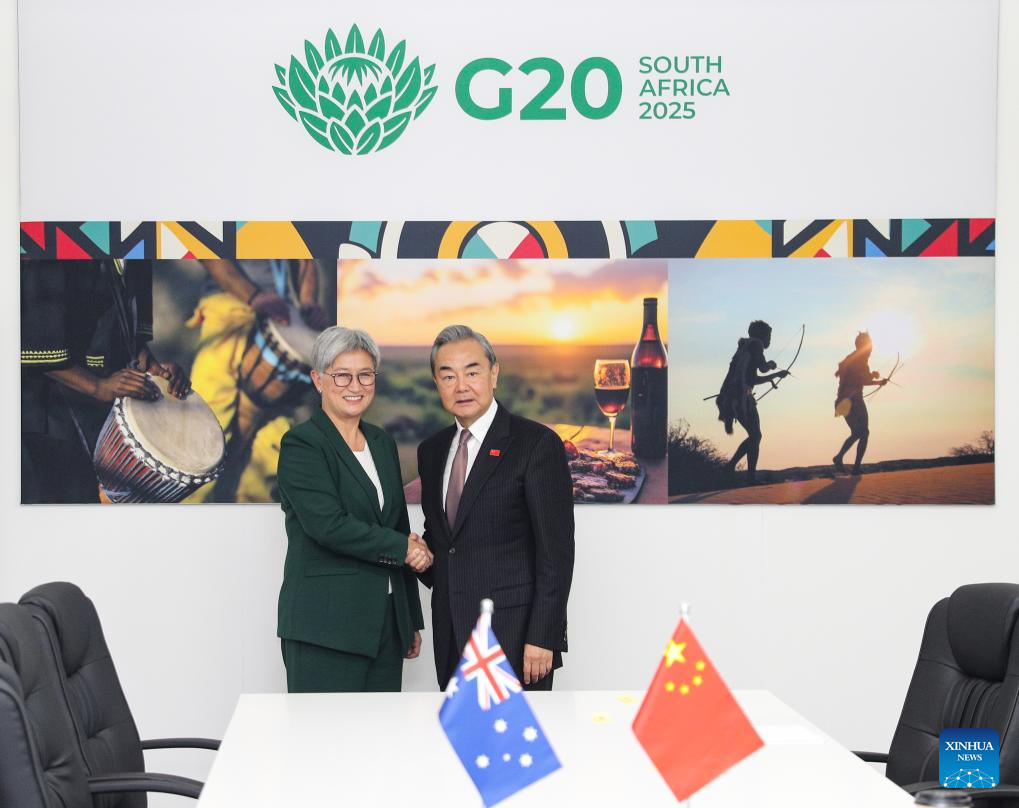
Chinese Foreign Minister Wang Yi, also a member of the Political Bureau of the Communist Party of China Central Committee, meets with his Australian counterpart Penny Wong in Johannesburg, South Africa, Feb. 21, 2025. (Xinhua/Zhang Yudong)
JOHANNESBURG, Feb. 22 (Xinhua) -- The return of China-Australia relations to a path of sound and stable development serves the common interests of both sides and aligns with the aspirations of their peoples, Chinese Foreign Minister Wang Yi said while meeting with his Australian counterpart, Penny Wong, in Johannesburg, South Africa, on Friday.
Under the strategic guidance of their leaders, China-Australia relations have stabilized, a development welcomed by all sectors of both countries, said Wang, who is also a member of the Political Bureau of the Communist Party of China Central Committee.
China is ready to work with Australia to build a more mature, stable and fruitful comprehensive strategic partnership, he added.
While appreciating Australia's repeated commitment to the one-China principle, China hopes that Australia will continue to respect its core interests and major concerns, maintain the political foundation of bilateral relations, and properly manage differences, Wang said.
Amid the current complex and volatile international situation, China believes that all countries should practice true multilateralism, with major countries taking the lead in firmly opposing efforts to reverse the course of history and return to the "law of the jungle," he said.
China is ready to work with Australia and other members of the international community to defend the victorious outcomes of World War II and uphold the international system with the United Nations at its core, he added.
Wong, for her part, said that China-Australia exchanges across various fields have made positive strides, with economic and trade relations fully recovered, sending positive signals.
The Australian side adheres to the one-China policy and is willing to continue strengthening cooperation with China in areas that serve their respective national interests, uphold the international rule of law and strategic security, and jointly address global challenges, she said. ■



